Clinician Bios
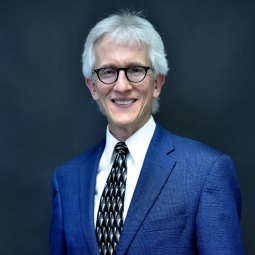
Dr. Christopher Azzara
Pianist, arranger, author, and educator, Christopher Azzara has made important contributions to advancing the understanding of creativity and improvisation in the music learning process. An innovator in the area of music teaching and learning, Dr. Azzara is Professor and Chair of Music Education and Affiliate Faculty of Jazz Studies and Contemporary Media at the Eastman School of Music.
Teaching and performing internationally, he is the author of numerous articles, arrangements, and books, including Developing Musicianship Through Improvisation, Creativity In Improvisation, and Jump Right In: The Instrumental Series (GIA). His arrangements for instrumental and vocal ensembles include A la nanita nana for choir and chamber orchestra or piano (Oxford), and Concert Selections for Winds and Percussion (GIA). His research and publications are concerned with meaningful relationships among listening, creating, improvising, reading, composing and analyzing music in vocal and instrumental settings. Dr. Azzara’s work has appeared in journals such as the Journal of Research in Music Education, the Music Educators Journal, Early Childhood Connections, and in The New Handbook of Research on Music Teaching and Learning (MENC/Oxford). He performs as a soloist and in various ensembles, including the Chris Azzara Quartet, and has played on and produced many studio and educational recordings. In Rochester, he performs with free-lance musicians, members of the Eastman School of Music faculty, and members of the Rochester Philharmonic Orchestra. An active teacher and clinician, he has taught and performed extensively throughout the United States, and in Canada, the Caribbean, France, Germany, Italy, Lithuania, Poland, Japan, and Australia. He has presented clinics and workshops in a variety of settings, including TEDxRochester, the Pittsburgh Symphony Orchestra and leading music schools in this country and abroad.
Christopher Azzara is a native of Virginia and attended public schools in Fairfax County. After receiving the Bachelor of Music degree from George Mason University, he taught instrumental music in the Fairfax County Public Schools and performed as a pianist in the Washington D.C. area. He later received a Master of Music and a Ph.D. in Music Education from the Eastman School of Music. Prior to joining the Eastman faculty, Dr. Azzara was a professor at The Hartt School of Music, Dance, and Theatre of the University of Hartford, CT.

Jessica Corwin is the Director of the Adaptive Music Program at the Community Music School of Springfield, a role that she assumed after fifteen years as a proud Massachusetts public school teacher. As a multi-instrumentalist, Jessica's varied resume includes work as a Strings Director, Assistant Conductor of the Brookline Chorus, Kodaly educator, and infant and toddler music teacher. In 2016, she was a recipient of the Pioneer Valley Excellence in Teaching Award from the Harold Grinspoon Foundation.
Jessica holds a Graduate Certification in Music Education and Autism from Berklee School of Music as well as degrees from Oberlin Conservatory of Music and the Boston Conservatory, and Kodaly certification from the Hartt School of Music. She also serves as the Chair of the Sunderland School Committee and is an active member of the Massachusetts Association of School Committees. Jessica plays viola professionally and was a founding member of the mission-based chamber ensembles Larcom Strings and the Quark Quartet.
Dr. Sandra Doneski has taught in the Department of Music at Gordon College since 1999. She has been a teaher of music to students in kindergarten through graduate school. She teaches courses in music education methods, learning theory, assessment, curriculum development. She also supervises student teachers and conducts the Gordon College Children's Choir. Dr. Doneski founded the Children's Choir in 2000 to give children in the community an opportunity to grow as musicians, and music education majors an opportunity to develop as teachers and conductors.
Dr. Doneski has also served on the facuty of the New England Conservatory (NEC) Preparatory School, where she was associate conductor of the Children's Choir Program. Under her guidance, NEC implemented choral programs for early elementary and middle school students that focused on vocal pedagogy and building musicianship. She has served as a conductor for events in the northeast sponsored by the National Association for Music Education (NAfME) and the American Choral Directors Association (ACDA), and is co-founder of Embracing the New Music Educator, a mentoring program for new music educators in Massachusetts.
In 2009 Dr. Doneski was the recipient of the Massachusetts Music Educators Association (MMEA) Lowell Mason Award and the Society for General Music in Massachusetts Excellence in General Music Award. In 2012 she received the MMEA Distinguished Service Award, and in 2013 she received the Administrators in Music Education Visionary Leadership Award.
Dr. Donesi has published articles and conducted workshops on choral literature and techniques, curriculum development, assessment and mentoring. She recently co-authored "Research on Elementary and Secondary School Singing" a chapter in the MENC Handbooj of Research on Teaching ad Learning in Music Education.
Dr. John Feierabend is considered one of the leading authorities on music and movement development in childhood. He is a Professor Emeritus of Music Education at The Hartt School of the University of Hartford and is a past President of the Organization of American Kodály Educators. He has given presentations in all 50 states and many other countries. He is the author of over 70 books, recordings, and DVDs, several of which served as the inspiration for the award winning PBS children’s television series Lomax: The Hound of Music.
Dr. Feierabend has been honored as a Lowell Mason Fellow by the National Association for Music Education (NAfME); named University Educator of the Year by the Connecticut Music Educators Association; received the outstanding alumni award from Wayne State University; received the Outstanding Educator Award from the Organization of American Kodály Educators, the James Bent Award for outstanding achievement in scholarship and creativity from the University of Hartford, and was the first U.S. recipient of the LEGO Prize, an international award given annually to “an individual who has made a distinctive contribution to the betterment of children.”
Dr. Feierabend continues to be committed to collecting, preserving and teaching the diverse folk music of our country and using that folk music as a bridge to help children understand and enjoy classical music. Dr. Feierabend’s creativity and research has resulted in two music methods; First Steps in Music, a music and movement program for infants through elementary-aged children and Conversational Solfege, a music literacy method suitable for elementary through college-aged student.
Dr. Feierabend’s teaching has provided thousands of teachers and their students with the materials and techniques to help build community through music by evoking enthusiastic participation of all people. To that end his approach strives for all people to become tuneful, beatful and artful through research based and developmentally appropriate pedagogies while promoting the use of quality literature. In the summer of 2012 a group of dedicated and like-minded educators honored Dr. Feierabend’s 40 plus years of teaching and research with the formation of the Feierabend Association for Music Education. For more information go to: www.feierabendmusic.org and www.giamusic.com/feierabend.
The full list of Dr. Feierabend’s publications is available through his publisher, GIA Publications.

Lillie Feierabend is known for her work with young children and instilling a love of music within them. She has been an early childhood and general music educator for over thirty years and was conductor for the Connecticut Children's Chorus for eighteen. She has twice been honored with her respective district's Teacher of the Year Award for her inclusive and innovative music programs, and in 2008 also received the Outstanding Elementary Music Educator Award from the Connecticut Music Educators Association. She is a frequent clinician at local, state and national conferences, and has presented over two hundred sessions on music and movement development. She conducts regional honors choirs and teaches weeklong workshops around the country including Anderson University (IN), Gordon College (MA), Silver Lake College (WI), and the University of Hartford (CT). Over the course of her career, Lille has mentored twenty-three student teachers and will forever be grateful for the opportunity.
Lillie is a founding and lifetime member of FAME. She is also a member of NAfME, OAKE, CMEA, and ACDA, where she served as the National Children's Honor Choir Chair for the 2010 Conference. She is a member and former president of KESNE (Kodaly Educators of Southern New England and President-Elect of the regional chapter of Delta Kappa Gamma, an international organization which supports and promotes excellence in education.
While Lillie taught First Steps in Music and Conversational Solfege as they evolved, she became an endorsed Teacher Trainer in both curriculums in 2012.
Dr. Michael Hildebrandt moved to the North Shore of MA in 2004 to teach at Landmark School and pursue a master's degree in the area of moderate disabilities and literacy. He taight at Study Skills and Language Arts at Landmark until 2012 and continues to lead workshops and classes for students, parents, and teachers. Michael's doctiral work allowed him to develop his research and practice in the areas of self-regulated learning and executive function deficits into a private practive serving individuals and families. Michael has completed several studies on the experiences of individuals in periods of transition. His work explores the loss of identity, the need for community, narrative constructions of the selv/selves, and the reconstruction pursued through various sociocultural factors. Michael has taught Introduction to Exceptionality at Gordon College since 2011, and has also taught at Granite State College, Manchester (NH) Community College, and the University of New Hampshire.
Michael's academic scholarship has been funded by fellowships at the Ahimsa Institute for Nonviolence in California and the College of Liberal Arts at the University of New Hampshire. Michael's academic program development work has been funded through grants from the Davis Educational Foundation and from the Oak Foundation USA. He holds a B.A. from Colby College, M.S.Ed. from Simmons College and Ph.D from the University of New Hampshire.

Jennifer L Kass (MA, MT-BC) is a board-certified music therapist practicing in Western Massachusetts. Jen studied music at Clark Univeristy and earned her graduate degree in Music Therapy from Lesley Universty. She has been a practicing music therapist since 2001, working with populations ranging from preschool to geriatrics. In addition to her music therapy consulting work, Jen has worked at the Community Music School of Springfield as a music therapist since 2006 and the Adaptive Music Program since 2016. Her role as an AMP Teaching Artist includes direct adaptive music instruction and also supporting public school music teachers to provide real time trouble shooting and support, a job affectionately and accurately referred to as "Chaos Interpreter".
After writing her graduate thesis on the importance and value of music making as self-care for the music therapist, Jen is a frequent participant at her local weekly open mic event, where her focus is on process rather than product. shen she is not working in the music therapy and education fields, Jen is a perpatual art maker and amateur instrument repair enthusiast.
Dr. Robert "Gabe" Southard joined Gordon College is the Fall os 2022 as Associate Teaching Professor of Music and conductor of the Gordon Symphony Orchestra and Symphonic Band.
Immediately prior to joining Gordon's music faculty, Dr. Southard was serving as Associate Profesor of Music and Director of Bands at Hope College, MI. At Hope College, he was also the Head of the Winds and Brass area and Head of the Instrumental Music Education Department. Dr. Southard completed his Doctorate of Musical Arts in Conducting at Michigan State University where he studied with Professor John Whitwell. Prior to this, Dr. Southard served as Wind Symphony conductor and Flute instructor at the University of Michigan-Flint. He also holds a master and bachelor of music degrees from the University of Wisconsin and Ithaca College.
Dr. Southard is an active orchestrator. His largest project to date is an arrangement for wind ensemble of Rimsky-Korsakov's Symphony No. 2 "Antar," which is currently published through OHM Music. He has also started a line of flexible chamber arrangements aimed to help smaller schools performa great works even if they do not have the proper instrumentation. The first piece of this line, Mozart's Serenade in C minor, was published in the Fall of 2022.
As a flute player, Dr. Southard maintains an active performing schedule as principal flute of the Holland Symphony Orchestra, MI, and as a recitalist throughout the U.S. He has also performed with the Madison Symphony Orchestra, the Lucca Opera Orchestra, Italy, as well as a number of community orchestras. Dr. Southard was a semi-finalist in the National Flute Association's Piccolo Artist Competition and winner of the 2016 Convention Performers Competition where he performed two new works at the convention in San Diego. In 2020, Dr. Southard was named a Pearl Flute Artist, one of fewer than 70 flutists worldwide. In 2022 he released his first flute CD - Gold Mosaic: Music for Flute by Dana Wilson, currently available on streaming platforms.
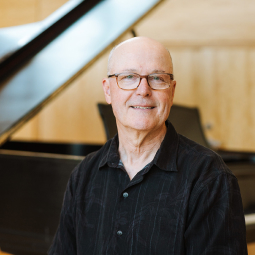
Kenneth Trapp teaches general music K-6 in Stratford, CT. He is also an adjunct Professor of Music Education at the Hartt School, University of Hartford, and at Gordon College in Wenham, MA. Ken has contributed chapters to two textbooks on the topic of developing aural skills; Engaging Music Practices; A Sourcebook for Middle School General Music, 2012, and The Development and Practical Application of Music Learning Theory, 2005. He is also a professional musician who performs in many ensembles both locally and nationally. Through years of study, Ken has used his knowledge of ensemble performance, harmonic awareness and improvisation to develop activities and materials for students of all ages to become successful playing the ukulele. He is committed to the challenge of bringing aural comprehension to young music learners.
Dr. Ellen Voth is Artistic Director of the Farmington Valley Chorale based in Simsbury, CT, a large symphonic chorale of 80-plus members. Through her engagement with singers, collaborating with guest professionals, and partnerships with arts organizations, her vision and artistic leadership of the Chorale has garnered attention throughout the greater Hartford region and beyond. She has also served on the music faculties of Western Connecticut State University in Danbury, CT; Westfield State University in Westfield, MA; Western New England University in Springfield, MA (also serving as music coordinator); Gordon College in Wenham, MA; and the Ithaca College School of Music in Ithaca, NY. Her teaching and mentoring reflects her passion for and dedication to high standards of artistry, scholarship, and integration among different areas of study.
For seven years, Voth served as Artistic Director of Novi Cantori, a professional chamber choir based in greater Springfield, MA, conducting nearly fifty performances of music from the Renaissance through the present, balancing traditional and innovative programming with new ventures in community outreach. She also served as Chorus Director of the Pioneer Valley Symphony Chorus (MA), as Director of the Symphonic Chorale at Gordon College (MA), as Assistant Conductor of the New Haven Chorale (CT), as a conductor with the Connecticut Children’s Chorus, and as choral director at Perkiomen Valley High School in Collegeville, PA. For many summers Voth served on the faculty of the Masterworks Festival in Winona Lake, IN and the Csehy Summer School of Music in Langhorne, PA. Her guest conducting invitations have been regional and national in scope, including the Rhode Island All-State Festival and OAKE National Chamber Choir in recent years.
A well-established composer, Voth’s works are published by Oxford University Press, ECS Publishing, Colla Voce, Santa Barbara Music Publishing, and Graphite Publishing. Her works have appeared at conferences of the American Choral Directors Association, College Music Society, and National Association of Teachers of Singing. Voth is the winner of the 2022 American Prize for Choral Composition (shorter works), for “Across the empty square”; the 2022 co-winner of the Ithaca College Choral Composition Prize, for “I had no time to hate”; the 2020 Cincinnati Camerata Composition Prize, for “Above gravity”; and the 2020 Michigan Choral Commission Consortium Award, for “Seeing the same stars”.
Voth received her doctoral degree (DMA) from The Hartt School, Univ. of Hartford (CT), where she was the recipient of the Regents’ Honor Award for graduate students. Her dissertation research was a qualitative study of the use of moveable do solfège and the piano in the choral rehearsal. Her master’s degree (MM) was from Westminster Choir College of Rider University (NJ), and her bachelor’s degree (BME), magna cum laude, was from Wheaton College Conservatory of Music (IL).

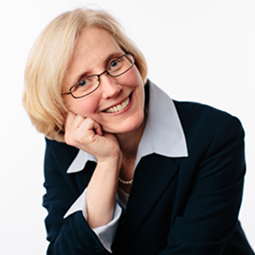
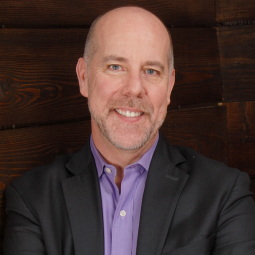
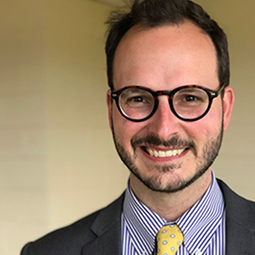
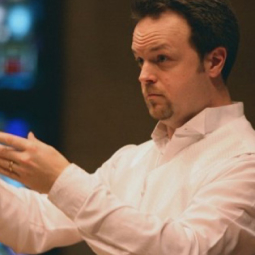
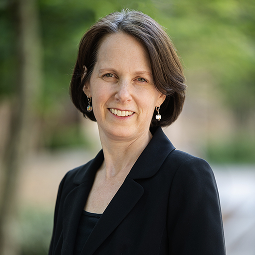
 Graduate Music Summer Workshops
Graduate Music Summer Workshops Clinician Bios
Clinician Bios


